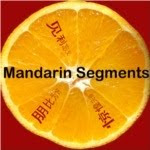I read him a lot
And though I'm a grown-up
I still think he's hot!
If I Ran the Zoo
And then: Hop on Pop
Horton Hears a Who
Ten Apples up on Top
One Fish Two Fish
The Cat in the Hat
Red Fish Blue Fish
So many classics like that.
You can read Wikipedia
With relative ease
About the Doc's background
In English / Chinese
How I could fit it in
To translate his titles
Into pure Mandarin
So with some quick searching
I found this and that
And have copied it down here
Now give me a pat
You can read them quite quickly
Without paying much heed
Or copy-and-paste them
Into flashcards you'll need
Whatever you choose
Remember you are the one
You just cannot lose
When you make Mandarin fun.
. . . .
Some Translations
Dr Seuss
苏斯博士 (simplified)
蘇斯博士 (traditional)
sūsī bóshì (pinyin)
Note: The first part is clearly an attempt to transliterate his name, and the second (博士) means doctor or PhD
Cat in the Hat
戴高帽的猫
戴高帽的貓
dài gāo mào de māo
Note: The literal Chinese translation is a little different: 'the cat that wears the tall hat' (and how coincidental that 帽 and 猫 sound the same :)
Green Eggs & Ham
绿鸡蛋和火腿
綠雞蛋和火腿
lǜ jīdàn hé huǒtuǐ
Note: Literally translated. Green. Eggs. And. Ham.
If I Ran the Circus
如果我来经营马戏团
如果我來經營馬戲團
rúguǒ wǒ lái jīngyíng mǎxìtuán
Note: And now I know the word for circus :)
One Fish Two Fish, Red Fish Blue Fish
一条鱼 两条鱼 红色的鱼 蓝色的鱼
一條魚 兩條魚 紅色的魚 藍色的魚
yī tiáo yú liǎng tiáo yú hóngsè de yú lánsè yú
Note: Measure words really make a hash out of this!
Other posts
While searching for the Chinese names of his books, I found some other internet articles / blogposts, for those who might be interested ...
This last link has a long list of his books, including Chinese book names - certainly much longer than my list above.
Bookmark this post. For reference. And stuff.


 iGoogle collection of "Learn Chinese" feeds
iGoogle collection of "Learn Chinese" feeds